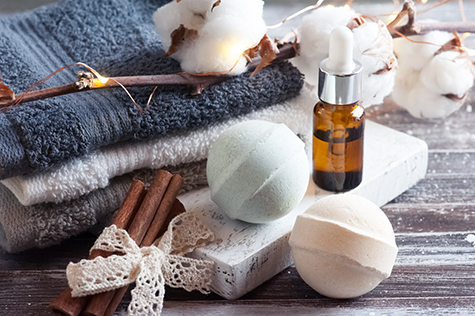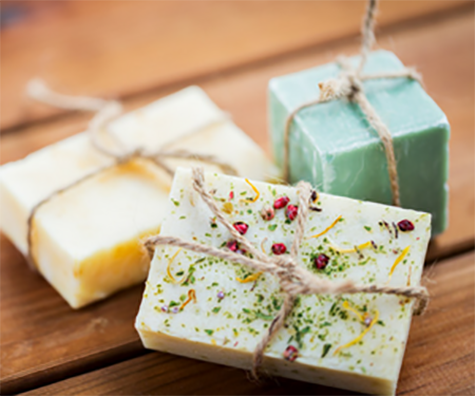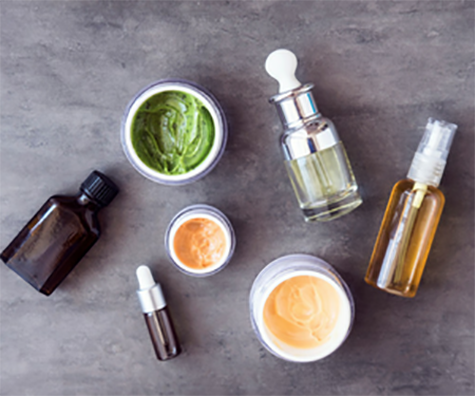How Green Beauty Products Inspire Change

Looking for a beautiful way to help planet Earth? Now is your moment. New, mission-driven personal care companies are launching impressive products that seek to inspire healthier beauty choices. Long- standing companies are reformulating products for meaningful impact. All of which means you’re empowered to connect the dots between health, beauty and sustainability.
These emerging trends are shaping the future of natural and organic personal care, with a focus on today’s top-of-mind issues: health, environmental sustainability, trust and integrity. Who says beauty is only skin deep?
Small-Batch Goodness
The craft movement is alive and well, offering fuller ingredient transparency and a stronger connection to where products come from. And the trend isn’t just showing up in chocolates, coffees and brewskis; personal care companies are on board, too. Craft and artisan soaps and more are flying off shelves as back-to-basics companies hand-make products with unique shapes and scents.
The trend extends into sourcing and even foraging for hyperlocal ingredients. Hall Newbegin, founder of Oakland, California–based body care company Juniper Ridge, forages domestic woodlands for ingredients to use in soaps, body washes and other personal care products. “We go out to the mountains and harvest the plants, then distill out their goo,” he says. “People are rightfully afraid of fragrance because there are so many synthetic scents out there. [With foraged ingredients,] you’re getting a real experience of fragrance.”
Top Performers
Skin, body, hair and nail care products made with clinically backed, gentle, plant-based active ingredients was once a pipe dream. Today—lucky you—that’s what responsible companies are delivering.
“Ten-plus years ago, it was very rare to find the words ‘scientifically proven’ or ‘clinically proven’ on a product label at your local health food store,” according to Jeremiah McElwee, founder and chief “thinkubation” officer at Simply Fair Skin Care. “Like most of the natural products industry, the skin care products you find on shelves today are far more efficacious and higher quality than they ever have been.” Prediction for 2018: They’ll just keep getting better and better, so don’t be afraid to ask your retailer or favorite brand if they can show some science to back up their beauty products’ benefits.
Upcycled Beauty
Making a resolution to waste less food? Forward-thinking beauty companies have the same idea. Today, repurposed plants show up in everything from soaps to face creams. Repurposing food ingredients isn’t new in beauty (many ancient traditions did this). What is new is how “green chemistry” is transforming these ingredients into high-performance, sophisticated products, says Kantha Shelke, PhD, principal at Corvus Blue, a Chicago-based food science and research firm.
Green chemistry seeks to replace petroleum-derived and other caustic ingredients with effective, plant-based alternatives and renewable materials. “Biotechnologists are now advancing this practice in a more systematic manner to find ways to recycle and use food industry byproducts,” says Shelke. That means personal care companies now upcycle everything from winery grapes to rice byproducts and vegetable waste.
Packaging continues to get an upcycled makeover, too, happily pushing eco-disaster plastic further into oblivion. Expect to see more waste-free packaging with up-and-coming solutions, including botanical papers processed efficiently from plant wastes, such as cacao husk, coffee chaff and rice cellulose.
Verification on the Label
You know how to spot organic apples or fair-trade tea, but how do you check the quality of your beauty products? To find the safest, “cleanest” and most mission-driven products, look for companies that make an extra effort to verify the quality of their ingredients and the integrity of their business practices.
Even though there are still essentially no restrictions on personal care ingredients—no checks and balances to ensure quality production or government oversight to respond if a product is found to be unsafe—there are certifiers, organizations and trade associations highlighting brands committed to safe cosmetics. Many new and established personal care companies are seeking certifications—USDA Organic, NSF “contains organic,” fair trade, Certified B Corporation, Biodynamic—to prove their commitment to quality and to support sustainability, living wages, regenerative agriculture and more. Above all, responsible companies commit to full transparency, including ingredients, trade secrets, manufacturing processes and sourcing partners. Prioritize products with these labels to support their efforts.
SOURCE: This article is posted by permission Delicious Living (and its parent company New Hope Network), a trusted voice in the natural living community for 30 years.




